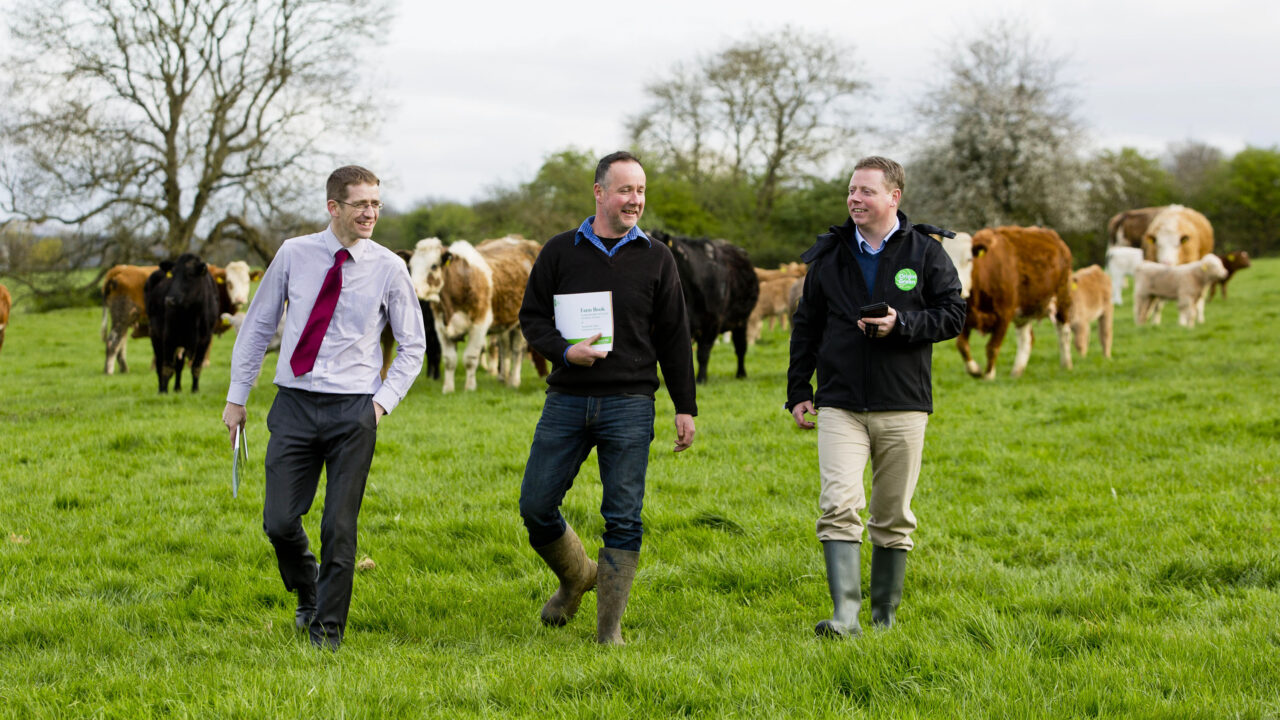The new Bord Bia Sustainable Beef and Lamb Assurance Scheme (SBLAS) must deliver better price returns back to farmers, the IFA President Joe Healy said.
The scheme must also be implemented in a more farmer-friendly way, he added.
The real measure of the success of the new scheme will be where Irish beef and lamb prices are in comparison to other countries, Healy said.
“Farmers must see a real price return for the efforts they are making in complying with the scheme.
“For farmers, a major improvement in the scheme is the introduction of a new close-out period, which will allow farmers to remain in the scheme – provided they remedy any non-compliances within one month of their audit.
Under the old scheme, farmers with non-compliances could find themselves outside the scheme immediately after an audit.
“This is a significant change which was very important to the IFA and will make the scheme fairer for farmers,” he said.
The IFA is insisting that clear protocols are put in place in relation to how auditors interact with farmers at audits, the associations’s Livestock Chairman, Angus Woods, said.
He said there would be no charge to farmers for Bord Bia audits, as the IFA has secured funding from the Department of Agriculture, Food and the Marine to cover these costs.
Under the new scheme the average inspection time for an audit will not increase, he added. In addition, Bord Bia is setting up a new help-desk to assist farmers with audit issues.
It is well established in the lamb sector that there is a 10c/kg price top-up for Quality Assurance lamb, the IFA’s National Sheep Chairman, John Lynskey, said.
This bonus needs to be increased in order to get more sheep farmers to join the scheme.
Lynskey pointed out that, under the new scheme, all of the sustainability data is recorded but this is not used to score the applicant at the audit.
‘Audits must be consistent and fair’
Improvements made to the scheme, such as the help-desk and close-out period, were welcomed by the Chairperson of the Irish Creamery and Milk Suppliers Association’s (ICMSA’s) Livestock Committee, Michael Guinan.
He stressed that all audits carried out in connection with the scheme must be consistent from the start and, most importantly, that all farmers who sign-up to the scheme need to get a financial benefit when they sell their cattle to a meat plant.
“The new scheme provides for a ‘close-out period’ during which farmers will have a month to rectify non-compliances detected at audit – without losing their certification status.
“This is a very important improvement to the scheme and it’s something that the ICMSA fought hard to have introduced.
This change should give farmers time to address minor issues without affecting their ability to claim the QA (Quality Assurance) bonus, when selling animals in the month after the audit has taken place.
“It is important that the scheme recognises practical realities and allows farmers to resolve issues within a reasonable timeframe.
“Furthermore, the ICMSA wants to see consistency of audits going forward, which means that repeat audits must not find fault with items that were deemed acceptable 18 months previously,” he said.
The most important aspect of the scheme is the recognition that it requires a considerable investment on the part of the farmer, Guinan added.
It is essential that a QA bonus is paid on all participating animals slaughtered which reflects the improved returns from the marketplace, he said.
“The Beef Grid has failed on this point to date and this needs to be addressed,” he said.
‘An important milestone’
The launch of the new scheme was also welcomed by the CEO of Dawn Meats, Niall Browne.
He hopes the new scheme will build on the progress made over recent years in ‘Beef and Lamb Quality Assurance’ and the evolution of Bord Bia’s ‘Origin Green’ programme.
“The Technical Advisory Committee (TAC), of which Dawn Meats is a member, represents all major stakeholders. It has completed an important body of work on behalf of Irish farmers and the industry as a whole in developing this standard.
“This is another important milestone for all those committed to sustainable agriculture and will further support the marketing of quality Irish beef and lamb to all markets in the years ahead,” Browne added.
